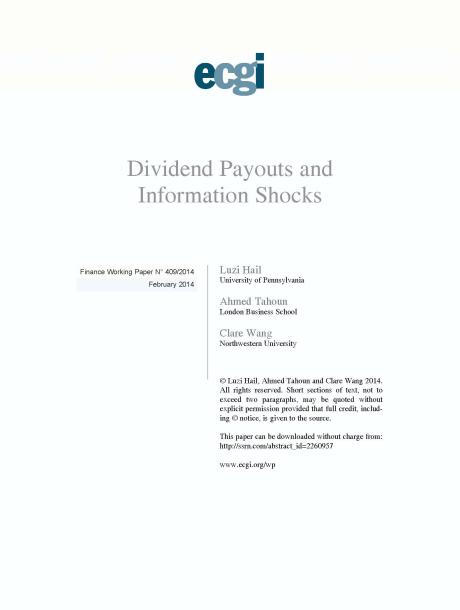
Dividend Payouts and Information Shocks
Abstract
We examine changes in firms? dividend payouts following an exogenous shock to the
information asymmetry problem between managers and investors. Agency theories
predict a decrease in dividend payments to the extent that improved public information lowers managers? need to convey their commitment to avoid overinvestment via costly dividend payouts. Conversely, dividends could increase if minority investors are in a better position to extract cash dividends. We test these predictions by analyzing the dividend payment behavior of a global sample of firms around the mandatory adoption of IFRS and the initial enforcement of new insider trading laws. Both events serve as proxies for a general improvement of the information environment and hence, the corporate governance structure in the economy. We find that following the two events firms are less likely to pay (increase) dividends, but more likely to cut (stop) such payments. The changes occur
around the time of the informational shock, and only in countries and for firms subject to the regulatory change. They are more pronounced when the inherent agency issues or the informational shocks are stronger. We further find that the information content of dividends decreases after the events. The results highlight the importance of the agency costs of free cash flows (and changes therein) for shaping firms? payout policies.









